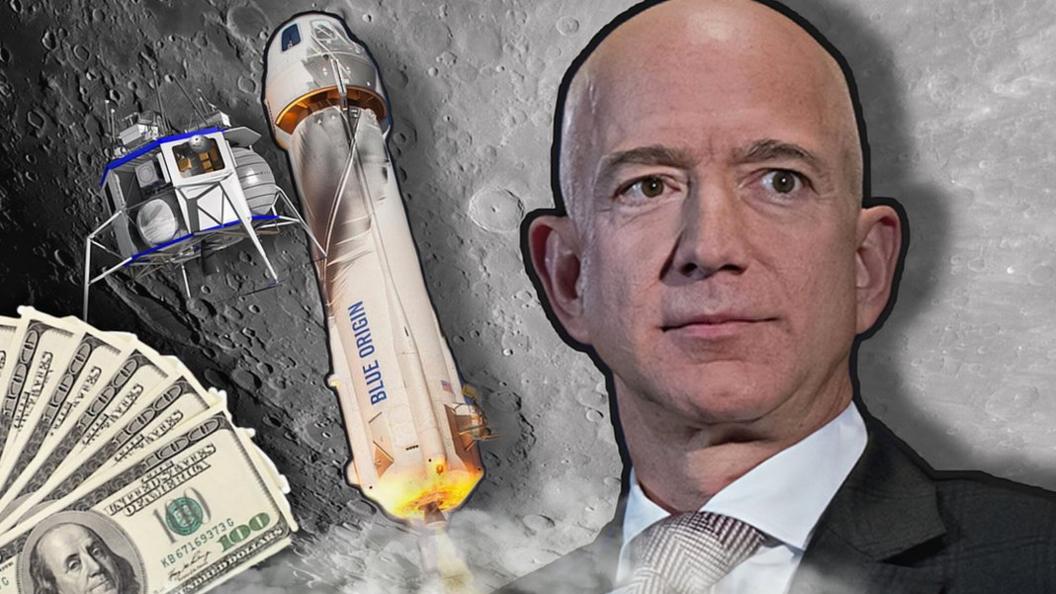Nasa Artemis Moon mission delayed to 2025
- Published
- comments
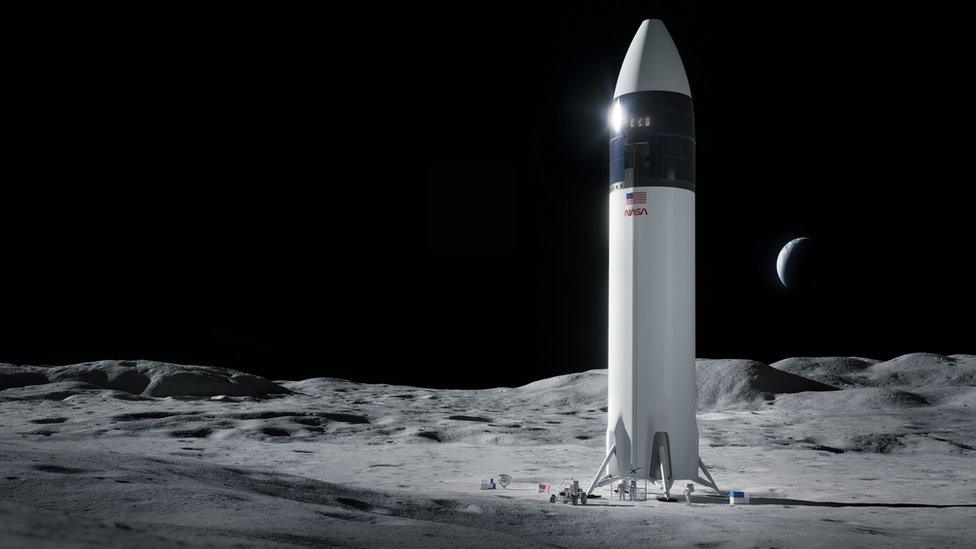
The vehicle is based on SpaceX's Starship design
Nasa's mission to the Moon has been delayed by a year.
The US space company were hoping to send the first woman and 13th man to the Moon by 2024 as part of their Artemis mission.
However Nasa's chief Bill Nelson confirmed that this would now be delayed until 2025 in a press conference.
This will be the first mission since 1972 - nearly 50 years ago - to put humans on the Moon.
Why has it been delayed?
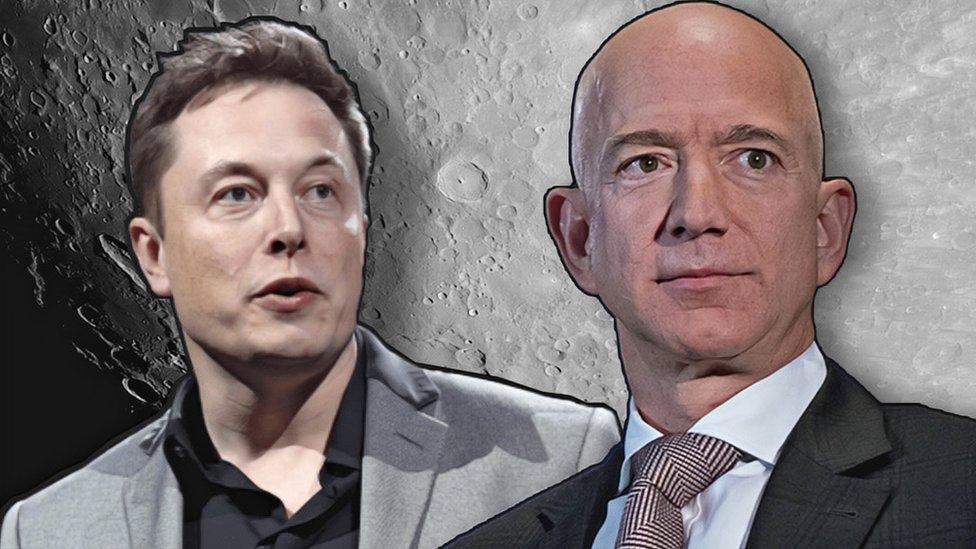
Two of the richest men in the world, Elon Musk (L) and Jeff Bezos (R) are also rivals when it comes to Nasa's mission to the Moon
In a blog post Nasa shared that a recent legal battle with Jeff Bezos - the founder of Amazon who also runs Blue Origin, a commercial space company - had delayed their progress by around seven months.
Jeff Bezos took Nasa to court earlier this year, saying that the space agency's decision to award a $2.9bn (£2.1bn) contract to Elon Musk's SpaceX team, instead of his own space company Blue Origin was "unfair".
Bezos and Blue Origin lost the lawsuit, with the court ruling in favour of Nasa's decision.
Nasa also said that the covid-19 pandemic had contributed towards the delay, as well as a lack of funding from Congress - whose job it is in the US to award public money to organisations like Nasa.
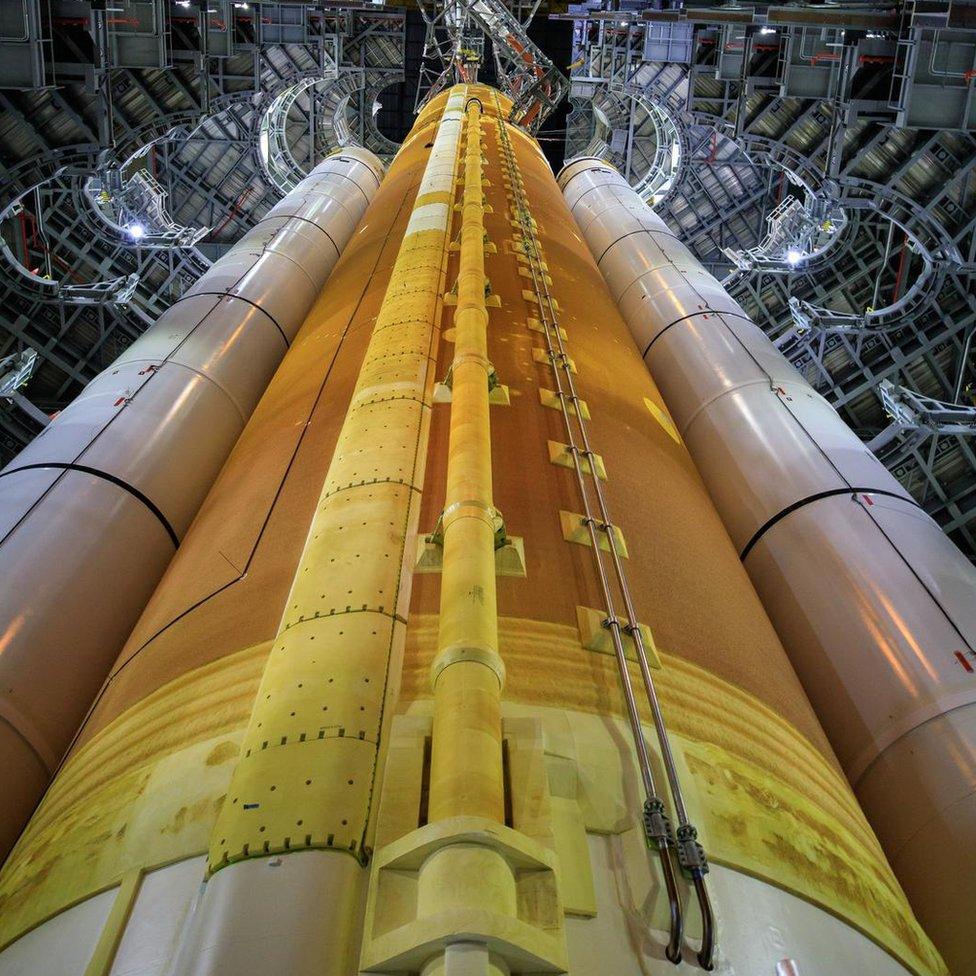
Artemis missions will launch atop Nasa's giant SLS rocket
The organisation also said the Trump Administration's landing goal of 2024 was "not being technically feasible" - meaning it would be almost impossible to meet the deadline.
"Returning to the Moon as quickly and safely as possible is an agency priority. However, with the recent lawsuit and other factors, the first human landing under Artemis is likely no earlier than 2025," Nasa's chief Bill Nelson said.
The first mission in the Artemis programme will blast off in February next year, with the launch of the Orion spacecraft on the powerful Space Launch System (SLS) rocket.
During this mission, Orion will fly around the Moon on a trip lasting three weeks, to test out the equipment. No people will be on board for the mission.
- Published19 August 2021

- Published20 July 2019
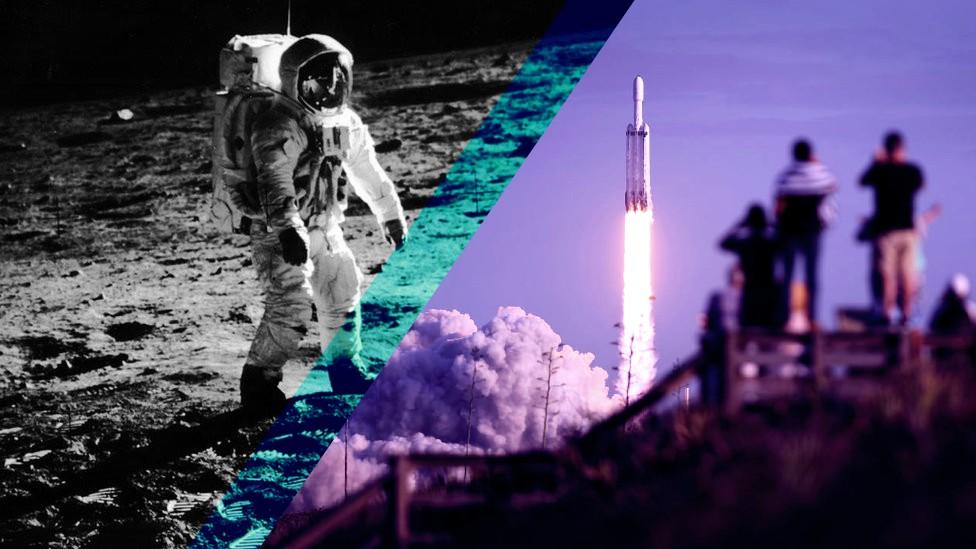
- Published27 July 2021
